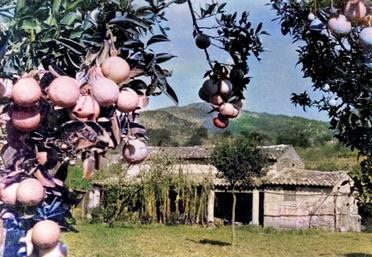What traditional and modern methods are used to harvest olives in Mallorca, and how do they impact the quality of the oil?
Similar Topics
mallorca olive harvest
traditional olive harvesting
modern olive harvesting
olive oil quality
handpicking olives
mechanical olive shakers
olive oil production
preserving olive integrity
In Mallorca, the harvesting of olives has traditionally been a hands-on process deeply rooted in the island's agricultural heritage. Families would often gather during the late autumn months, using small wooden rakes and carefully plucking olives by hand to avoid bruising the fruit. This gentle, labor-intensive approach helps preserve the integrity of the olives, which is crucial for producing high-quality oil. The olives are commonly collected in woven baskets or cloth nets laid out beneath the trees, minimizing damage. These methods emphasize patience and care, reflecting a deep respect for the land and its produce, contributing to olive oils renowned for their rich, complex flavors and delicate aroma.
In contrast, modern techniques have introduced efficiency and scale to the olive harvest in Mallorca, especially as demand for local olive oil has grown. Mechanical shakers that vibrate the tree trunks or branches are used to dislodge olives quickly, allowing for larger quantities to be gathered in a shorter time. While this method increases productivity, it can sometimes lead to the harvesting of less-ripe or slightly damaged olives, potentially affecting the oil’s subtle characteristics. However, many producers mitigate these concerns by combining mechanical methods with selective handpicking to ensure a balance between quantity and quality. The use of modern harvest machinery also necessitates prompt processing to prevent oxidation, which can impact the oil’s freshness and flavor.
Ultimately, the choice of harvesting method on Mallorca is a delicate balance between tradition and modernity. While traditional handpicking remains favored by many artisanal producers who prioritize quality and the preservation of Mallorca’s unique olive varieties, modern techniques have enabled larger-scale production and wider accessibility of the island’s olive oils. Both approaches reflect Mallorca’s commitment to maintaining the integrity of its agricultural traditions while adapting to contemporary demands, resulting in olive oils that offer a taste of the island’s landscape, culture, and history.
In contrast, modern techniques have introduced efficiency and scale to the olive harvest in Mallorca, especially as demand for local olive oil has grown. Mechanical shakers that vibrate the tree trunks or branches are used to dislodge olives quickly, allowing for larger quantities to be gathered in a shorter time. While this method increases productivity, it can sometimes lead to the harvesting of less-ripe or slightly damaged olives, potentially affecting the oil’s subtle characteristics. However, many producers mitigate these concerns by combining mechanical methods with selective handpicking to ensure a balance between quantity and quality. The use of modern harvest machinery also necessitates prompt processing to prevent oxidation, which can impact the oil’s freshness and flavor.
Ultimately, the choice of harvesting method on Mallorca is a delicate balance between tradition and modernity. While traditional handpicking remains favored by many artisanal producers who prioritize quality and the preservation of Mallorca’s unique olive varieties, modern techniques have enabled larger-scale production and wider accessibility of the island’s olive oils. Both approaches reflect Mallorca’s commitment to maintaining the integrity of its agricultural traditions while adapting to contemporary demands, resulting in olive oils that offer a taste of the island’s landscape, culture, and history.
🧩 Related Questions
Related Question
How does the Cathedral of Santa Maria of Palma reflect the island’s blend of religious and cultural influences?
Related Question
Can families with children reasonably attempt the Torrent de Pareis hike, or is it too demanding?
Related Question
Which amusement parks in Mallorca offer attractions suitable for all ages?
